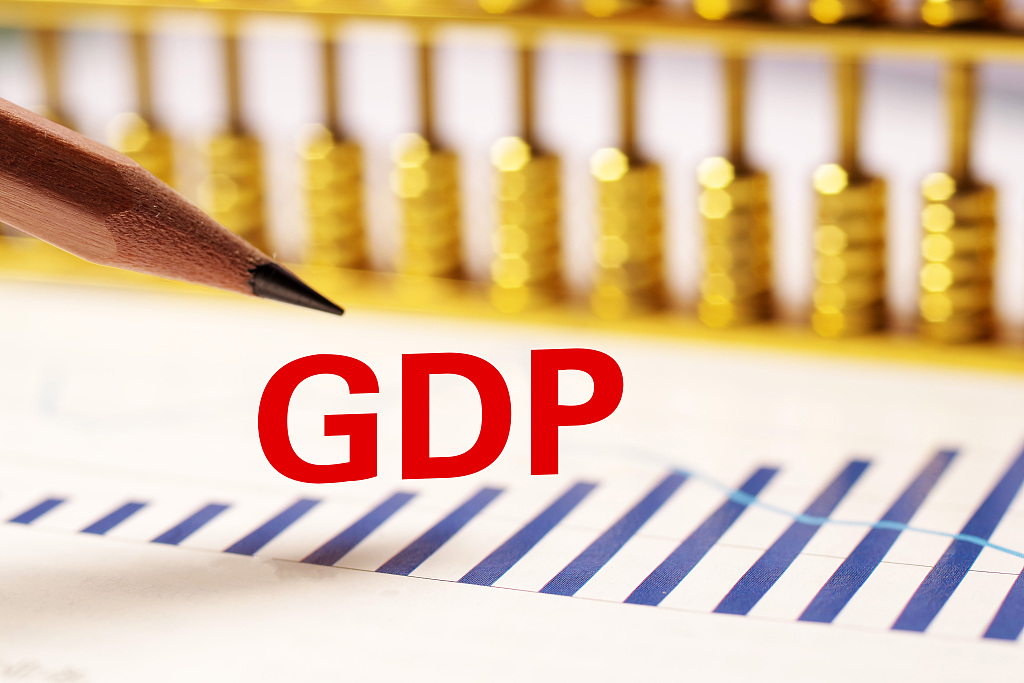First-quarter GDP grows 5.3 percent year-on-year
Growth: Recovery trend expected to continue
By Ouyang Shijia and Liu Zhihua | China Daily | Updated: 2024-04-16 23:58

China's economy grew more strongly than expected in the first quarter while pressures and challenges from insufficient demand persist, bolstering the case for more policy stimulus to consolidate the recovery trend.
Officials and analysts said that policymakers are expected to introduce more supportive measures for the development of the real economy and to restore consumer confidence and address property woes. Potential moves include increasing support to bolster emerging industries, as well as support for completing unfinished pre-sold homes and allocating more resources to support household spending, they said.
Projections indicate a potential acceleration in China's GDP growth in the second quarter, given the low comparison base. However, analysts cautioned that strong stimulus efforts must persist, and they advocated continued fiscal and monetary support in the coming months.
China's GDP grew 5.3 percent year-on-year in the first quarter of this year, data from the National Bureau of Statistics showed on Tuesday.
Sheng Laiyun, deputy head of the NBS, said the strong economic performance in the first quarter was led by notable improvement in industry and services.
NBS data showed China's value-added industrial output grew 6.1 percent year-on-year in the first quarter, after a 4.6 percent annual gain in 2023. Fixed-asset investment rose 4.5 percent in the first three months year-on-year, while retail sales grew 4.7 percent during the same period.
Looking forward, "the economy will continue the recovery trend, underpinned by global economic recovery, stepped-up policy support and the anticipated strong holiday business", Sheng told a news conference in Beijing on Tuesday.
Meanwhile, Sheng noted that China's housing market is still being adjusted. He said that more efforts will be made to increase support for the development of the real economy, foster emerging industries and boost consumer confidence.
Lu Ting, chief China economist at Nomura, said that while China's first-quarter real GDP growth beat expectations, March activity data was well below expectations.
"Activity data may drop further from March on weak momentum," Lu said. "Some sectors, especially exports, may hold up relatively well on falling prices and robust external demand."
He said the country might introduce more forceful measures to address the property woes in the coming months, especially regarding support for completing unfinished pre-sold homes.
China's economy is affected by the downturn in its property sector, said the International Monetary Fund's latest World Economic Outlook. The IMF estimated that China will grow at 4.6 percent this year, unchanged from the previous forecast in January.
Louise Loo, lead economist at British think tank Oxford Economics, said her team expects government bond issuance to pick up again in the third quarter.
Despite the fluctuations in March, Zhou Maohua, a researcher at China Everbright Bank, said he believes the economy is well on track to a steady recovery in the following months, given the continued recovery in industrial production and investment and the gradual improvement in consumption.
He said that China "still has ample policy space to bolster the world's second-largest economy".
On the monetary front, Huang Yiping, dean of Peking University's National School of Development, said the US Federal Reserve might cut the policy rate this year, which "should also create more room for the People's Bank of China to ease monetary policy if it wants to".
Tang Yao, an associate professor of applied economics at Peking University's Guanghua School of Management, said the United States should have been more cautious with its monetary policy to avoid negative effects in emerging markets.
"The US adopted an extremely loose monetary policy during the COVID-19 pandemic, leading to out-of-control inflation. It then raised interest rates frantically and rapidly, which has had a severe spillover effect on economies globally," Tang said.
If the US dollar remains strong, "the emerging markets will face higher pressure to keep capital from flowing away to the US, especially emerging markets with relatively less room for macroeconomic policy maneuvering", he said.
Zhou Lanxu contributed to this story.
























